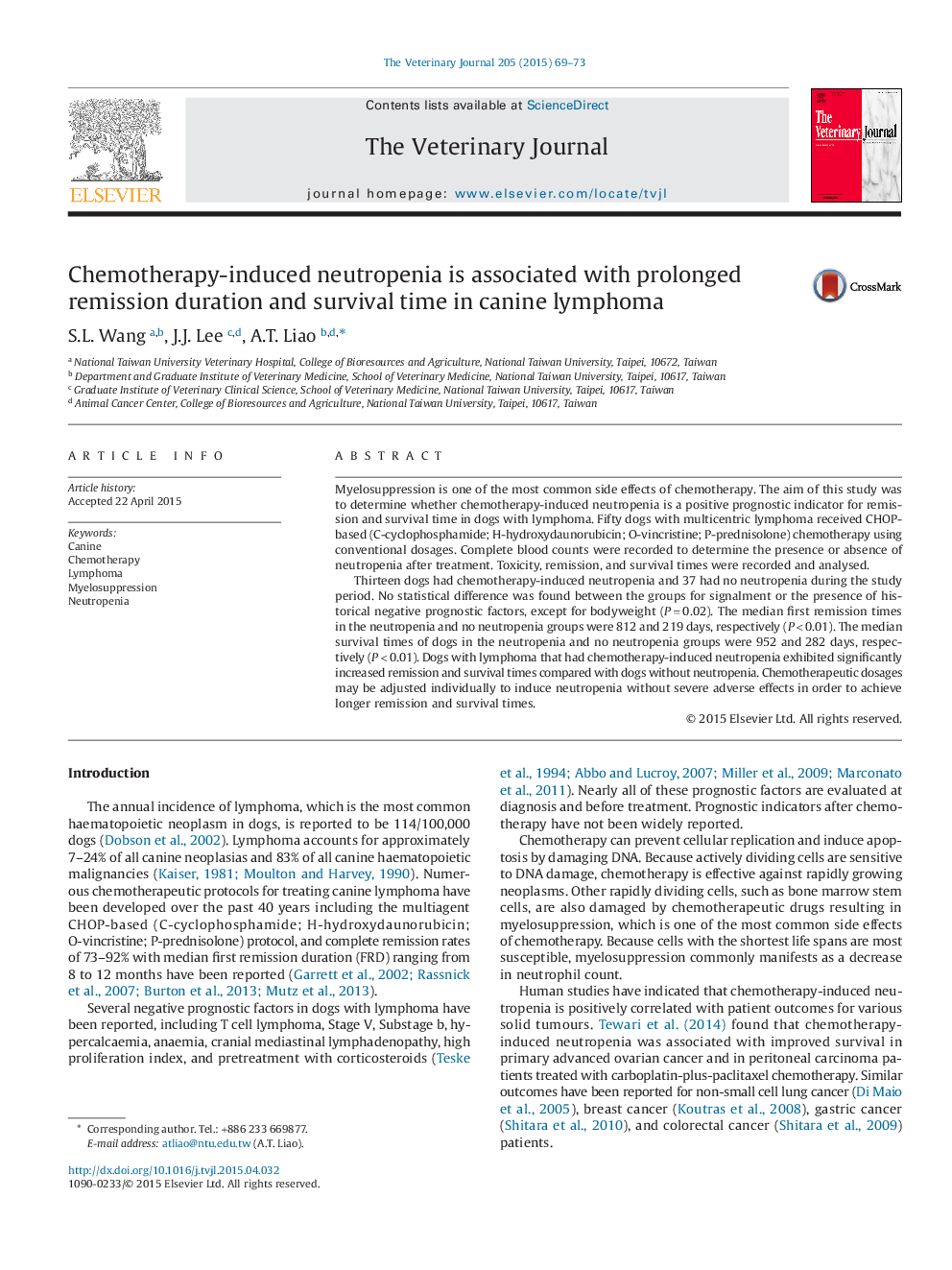| Article ID | Journal | Published Year | Pages | File Type |
|---|---|---|---|---|
| 5797405 | The Veterinary Journal | 2015 | 5 Pages |
â¢Dogs with lymphoma that had chemotherapy-induced neutropenia exhibited increased remission and survival times.â¢Chemotherapeutic dosages may be adjusted individually to induce neutropenia to prolong remission and survival times.â¢Large dogs were administered comparatively larger dosages of cytotoxic drugs to induce neutropenia.
Myelosuppression is one of the most common side effects of chemotherapy. The aim of this study was to determine whether chemotherapy-induced neutropenia is a positive prognostic indicator for remission and survival time in dogs with lymphoma. Fifty dogs with multicentric lymphoma received CHOP-based (C-cyclophosphamide; H-hydroxydaunorubicin; O-vincristine; P-prednisolone) chemotherapy using conventional dosages. Complete blood counts were recorded to determine the presence or absence of neutropenia after treatment. Toxicity, remission, and survival times were recorded and analysed.Thirteen dogs had chemotherapy-induced neutropenia and 37 had no neutropenia during the study period. No statistical difference was found between the groups for signalment or the presence of historical negative prognostic factors, except for bodyweight (Pâ=â0.02). The median first remission times in the neutropenia and no neutropenia groups were 812 and 219 days, respectively (Pâ<0.01). The median survival times of dogs in the neutropenia and no neutropenia groups were 952 and 282 days, respectively (Pâ<0.01). Dogs with lymphoma that had chemotherapy-induced neutropenia exhibited significantly increased remission and survival times compared with dogs without neutropenia. Chemotherapeutic dosages may be adjusted individually to induce neutropenia without severe adverse effects in order to achieve longer remission and survival times.
